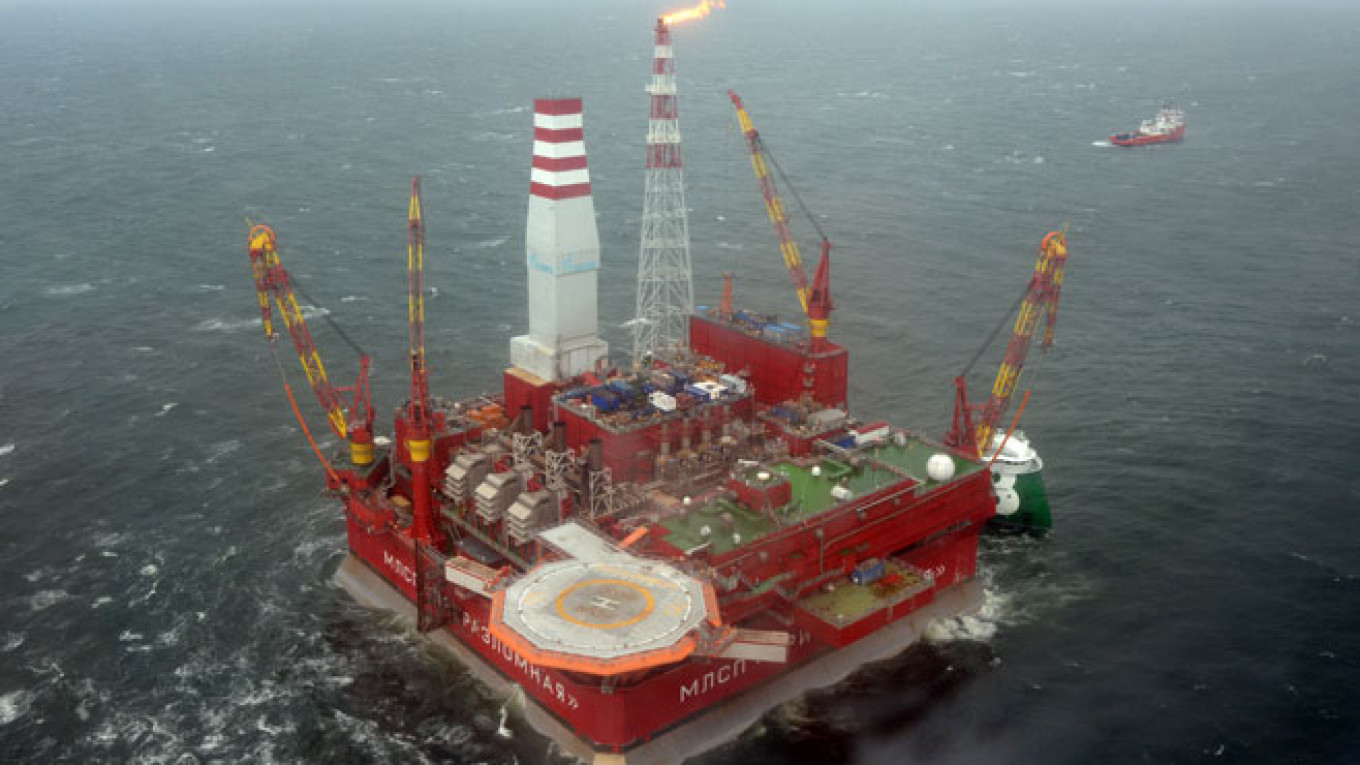In a blow to the financing of the state budget and Russian oil majors alike, global crude prices will likely remain low until 2015, according to the International Energy Agency's (IEA) Oil Market Report for November, released late last week.
"It is increasingly clear that we have begun a new chapter in the history of the oil markets," the agency said in its report.
On Thursday, oil prices hit a four-year minimum of $78 per barrel and although recovering slightly stayed below $80 until the end of the week. Just one month ago analysts predicted $80 per barrel would be the bottom for the continuing drop in oil prices but as the year approaches its end, $65 is already considered possible.
Relatively weak oil demand since mid-2014, the impact of a rising dollar and the relentless growth in unconventional oil supply, mainly shale oil production in the U.S., were the prime factors in the recent price drops, according to the IEA's report.
But oil prices may fall even further as global oil demand slumps while members of the Organization of the Petroleum Exporting Countries, or OPEC, have been reluctant to cut their output.
OPEC output eased somewhat in October to 30.6 million barrels per day (mbd) but remained well above the group's official 30 mbd supply target for a sixth month running, the IEA report said.
Oil prices could go down to $65 per barrel in the beginning of next year if OPEC countries did not decrease production, investment bank JPMorgan said in a report released at the end of last week.
"This outlook is quite real, keeping in mind the recent statements made by officials in the Middle East that they have no plans to curb output," said Sergei? Pikin, director of Moscow-based think tank the Energy Development Fund. As supply prevails over demand, this will continue to push the prices down, although the effect will likely be short-term, he said.
Russia's Oil Dependency
If oil does hit $65 to the barrel, though, it will be bad news for Russia's budget. The county's three-year budget, more than half of which is dependent on revenues from hydrocarbon exports, is based on prices around $100 per barrel.
The falling price of oil, coupled with Western sanctions and Russian counter-sanctions, has already hit the economy hard, with the Central Bank predicting close to zero growth for the next three years. The fall in oil prices has also helped drive the ruble's precipitous fall, which has dropped nearly 30 percent to the dollar this year.
Finance Minister Anton Siluanov said in late October that Russia should prepare a contingency budget due to Russia's economic troubles, although Prime Minister Dmitry Medvedev said earlier last week that the price around $80 does not give any reasons to revise the budget.
Oil companies, which make their money in dollars but whose costs are primarily in rubles, have so far been cushioned from the falling oil price due to the ruble's parallel slide.
But this does not mean the oil industry will always be so secure, analysts said.
Slumping oil prices coupled with frozen international investment over Ukraine will affect new projects such as development in the Arctic, which is feasible only at prices above $100 per barrel, or works on the Bazhenov shale oil formation in western Siberia, which will likely be either cancelled or postponed, Pikin said.
"Sanctions plus current price levels may mean that financing of new projects may be a bigger challenge than previously anticipated," the IEA's chief economist Fatih Birol said last week as he presented the agency's World Energy Outlook 2014.
In the long-run, both IEA and OPEC expect oil prices to climb back to around $100 per barrel but predict that this may not happen until well into 2015 and are doubtful the previous records of over $110 per barrel are likely to be achieved soon.
Global demand for oil is expected to pick up the steady growth trend after a short-term decrease in the second half of this year. Overall demand will grow from 92.4 mbd in 2014 to 93.6 mbd in 2015, according to IEA and OPEC estimates.
But IEA's outlook for the future does not envisage a central role for Russia to satisfy the global demand for oil. According to agency estimates, it will be the U.S., Brazil, Canada and the Middle East who will serve as the four pillars the world can rely on for its oil in the next decade. Russia's oil production at the same time is expected to decline steadily and it will be natural gas exports that the country will lead with in the world hydrocarbons trade in the next 25 years.
Contact the author at a.panin@imedia.ru


